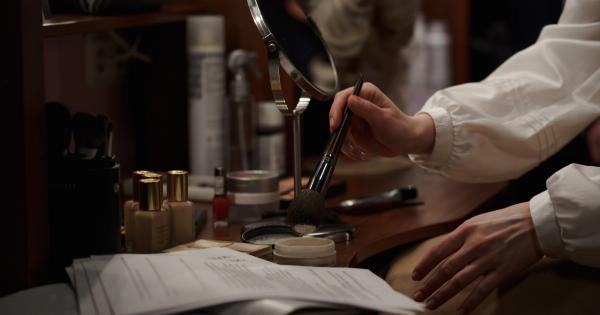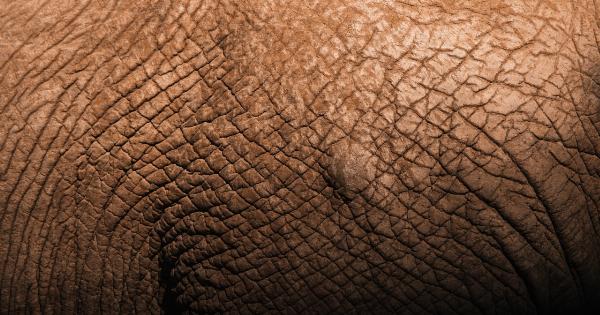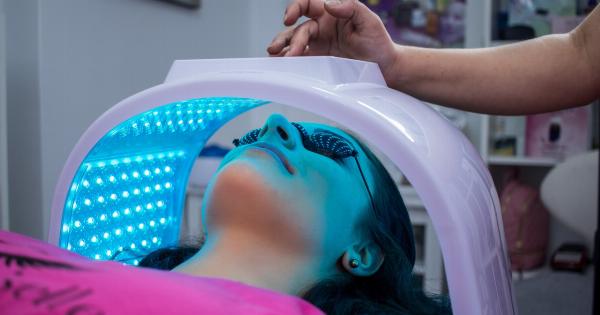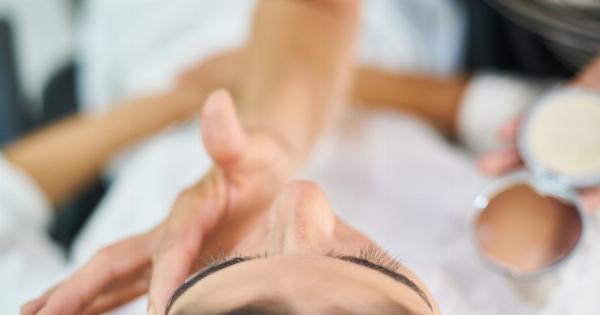Eczema, also known as atopic dermatitis, is a chronic skin condition that affects millions of children worldwide. It is characterized by dry, itchy, and inflamed skin that can be uncomfortable and painful.
While there is no cure for eczema, proper skincare and bathing routines can help manage the condition and prevent flare-ups. However, many parents make common mistakes when washing their children with eczema, unknowingly aggravating their symptoms.
In this article, we will discuss the errors to avoid while washing children with eczema, and provide helpful tips for maintaining healthy skin.
Using Harsh Soaps and Cleansers
One of the biggest mistakes parents make when washing their children with eczema is using harsh soaps and cleansers. These products can strip the skin of its natural oils, further drying out the already compromised skin barrier.
It is important to choose gentle, fragrance-free cleansers specifically formulated for sensitive skin and eczema. Look for products that are free from harsh chemicals, such as sulfates and parabens.
Overwashing
While it is crucial to keep the skin clean, overwashing can actually be detrimental for children with eczema. Excessive bathing can lead to further dryness and irritation. Instead, opt for shorter showers or baths using lukewarm water.
Limit bathing to once a day or every other day, depending on the severity of your child’s eczema. Don’t forget to pat the skin dry gently without rubbing, and apply moisturizer immediately while the skin is still damp.
Using Hot Water
Hot water can exacerbate eczema symptoms by stripping the skin of its natural moisture. Always use lukewarm water when bathing your child.
It is also helpful to keep the bathroom door closed during showers or baths to prevent the steam from escaping and drying out the skin.
Skipping Moisturizer
Moisturizing is a crucial step in managing eczema and keeping the skin hydrated. Many parents make the mistake of skipping this step or not applying moisturizer frequently enough.
After bathing your child, gently pat the skin dry with a soft towel and immediately apply a fragrance-free, hypoallergenic moisturizer to seal in the moisture. Reapply throughout the day as needed, especially after handwashing or exposure to water.
Using Fragranced Products
Fragrances in skincare products can be irritating to children with eczema. Avoid using scented soaps, lotions, or detergents as they can trigger flare-ups. Opt for fragrance-free alternatives that are specifically formulated for sensitive skin.
It is also advisable to wash your child’s clothes and bedding with fragrance-free detergents to minimize exposure to potential irritants.
Using Rough Washcloths and Towels
Using rough washcloths or towels can aggravate eczema-prone skin, causing further irritation and scratching. Instead, opt for soft, cotton materials that are gentle on the skin.
Avoid scrubbing the skin vigorously and pat dry with a soft towel to prevent excess friction.
Ignoring Triggers
Eczema triggers can vary from person to person, so it is essential to identify and avoid triggers that worsen your child’s symptoms.
Common triggers include certain fabrics (such as wool or polyester), allergens (like pet dander or pollen), harsh weather conditions, or certain foods. Keep a diary to note any potential triggers that coincide with flare-ups, and make appropriate changes to your child’s environment or diet accordingly.
Not Consulting a Dermatologist
If your child’s eczema symptoms are severe, persistent, or not responding to at-home treatments, it is crucial to seek guidance from a dermatologist.
A dermatologist can provide a proper diagnosis, prescribe medication if necessary, and offer personalized advice on skincare routines and bathing practices. Don’t hesitate to consult a professional for further assistance in managing your child’s eczema.
Using Harsh Laundry Detergents
The laundry detergent you use can have a significant impact on your child’s skin condition, especially if they have eczema. Harsh chemicals and fragrances in detergents can irritate the skin, leading to flare-ups.
Switch to hypoallergenic, fragrance-free laundry detergents that are gentle on the skin. Rinse clothes thoroughly to remove any residual detergent that may irritate the skin.
Not Keeping Nails Short
Keeping your child’s nails short is crucial when managing eczema. Eczema-prone skin is often itchy, and scratching can not only worsen the condition but also introduce bacteria and cause infections.
Trim your child’s nails regularly to minimize the risk of scratching and ensure their skin stays protected.
Conclusion
Proper skincare and bathing routines are essential for managing eczema in children. By avoiding these common errors and following the tips mentioned above, you can help alleviate your child’s discomfort and reduce the frequency of flare-ups.
Remember to use gentle, fragrance-free cleansers and moisturizers, avoid triggers, consult a dermatologist when necessary, and maintain a consistent bathing routine. With proper care and attention, you can help keep your child’s eczema under control and promote healthier skin.



























